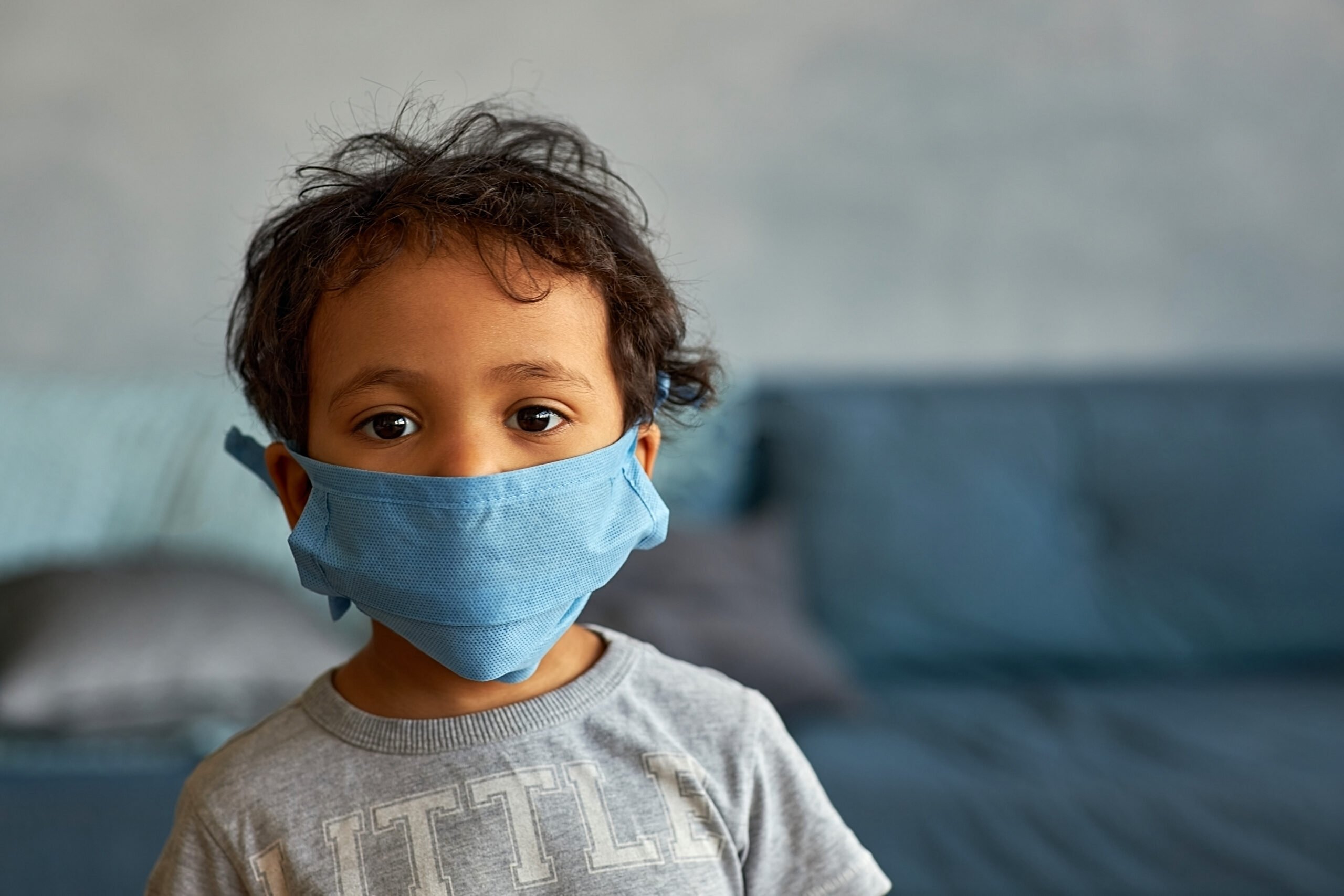
Is it just me or does the Omicron variant sound like a Marvel villain? It certainly is as menacing as one. Like most parents, I never envisioned that we would still be living in a pandemic nearly two years after first hearing the phrase "Covid-19." But here we are. It’s scary to say the least.
But it’s not just health concerns that plague me night and day
How is this affecting my 4-year-old? I often ask myself. When our family of four was first shut in for the lockdown, he would wander around the house with his animatronic Baby Yoda, frequently letting me know when his new best friend did something naughty and needed a time out.
“Oh boy,” I thought, “my child needs to play with real kids ASAP.”
He doesn't even remember a time when we didn't have to wear masks, but so much of his critical development has coincided with this pandemic. And while we are getting more comfortable with in-person events and restaurant dining, masks are still required pretty much everywhere we go in our state and that's especially true of schools.
This is the first year my 4-year-old is attending “big kid” school
It’s an exciting milestone, to be sure. And while I strongly believe wearing a mask all day is an absolute necessity for his safety and others, I do wonder how it will impact his social-emotional development. I think it’s a concern a lot of parents share.
We all know babies react to our faces
From the time my son was born, he learned how to communicate by watching the faces of those around them. Facial gestures are just as significant as tone of voice. As kids get older, the emotions they pick up from others are more nuanced — joy, compassion, annoyance, and anger are among the expressions they learn from others. Seeing how people react is key to understanding what is happening in any given situation. Is this person happy or worried?
A 2021 study by the University of Wisconsin-Madison’s Child Emotion Lab found that when children ages 7 to 13 were shown photos of faces that were obstructed, they were only able to identify sadness 28% of the time, anger 27%, and fear 18%. This is something parents didn't really have to worry about in the pre-pandemic world. If my son spends his day staring at covered faces, what happens to this developing skill?
I decided not to take the wait and see approach
Instead, I got proactive:
-
I’m exhausted by the end of the day, but I prioritize face time with my son every night. I make sure he sees my facial expressions when we interact during meals and bathtime, and we have conversations that inspire a range of emotions.
-
When I'm wearing my mask around him, I make sure that my tone matches the emotion of what I am saying. I want my feelings clearly communicated.
-
I know I can’t do this alone, so I ask friends and family to take part in social-emotional lessons. We used Messenger Kids to help our kids stay connected to their friends and family members throughout the pandemic. We continue to set up regular virtual play dates with loved ones in other states. It keeps him feeling cared for when we can't so easily hop on a plane to see his Grammy, and there is the added bonus of seeing her facial expressions. I also encourage him to try out new AR effects that express how he’s feeling. The app also has games and tools that keep the experience fun.
-
Teens need help too. I can see through my 13-year-old’s perpetual eye-rolling and video game obsession. I’ve also made sure he stays engaged by using Messenger video calling. For him, this has been perfect for virtual maskless hangouts with grandparents, aunts and uncles, cousins, and friends. He’s also used the “watch videos together” feature during video calls to have a more cool time with his buds.
Of course, I desperately want my children to grow and develop in a more "normal" environment, but masks are here to keep everyone safe. This particular area of development may happen a bit more slowly, but kids are very resilient and are able to adapt more readily than we often think. If I use all the tools at my disposal, my children should be able to continue growing their social and emotional skills and be ready to face the in-person world again whenever this pandemic may end.




